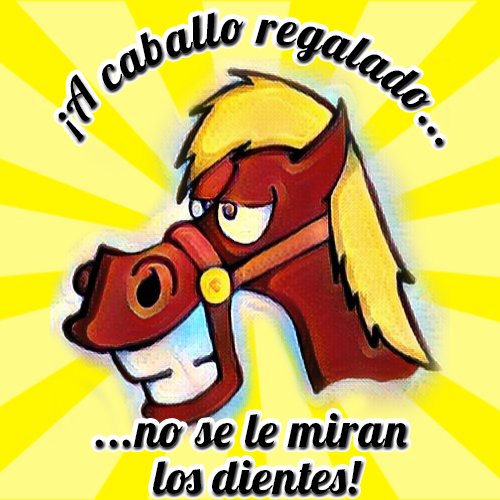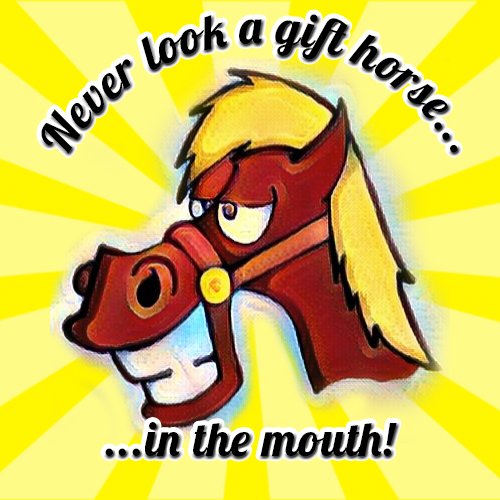
¿Nos ha pasado que cuando recibimos algún obsequio que no es necesariamente de nuestro total agrado aún así actuamos de la manera más agradecida que podemos? Pues esa es la manera correcta de actuar, ya que cuando alguien ofrece un regalo, asumimos que lo hace con la mejor intención, que es finalmente lo que más valor tiene.

El origen de este dicho es muy antiguo, de cuando los compradores de caballos revisaban minuciosamente la dentadura de los animales que iban a adquirir para así tener una idea de las condiciones generales de los mismos.
No busquemos los defectos de las cosas que nos dan como regalo, pues suponemos que la intención de la persona es agradarnos de alguna manera.


Has it happened to you that when you receive a gift that is not necessarily to your liking, you act in the most grateful way you can? Well, that's the right thing to do, because when someone offers a gift, we assume that they do it with the best intention, which is what matters in the end.

The origin of this saying is very old, from when horse buyers carefully checked the teeth of the animals they were going to acquire in order to get an idea of their general conditions.
Let's not look for the flaws of the things they give us as a gift, since we should think that the person's intention is to please us in some way.
Special Thanks to: @sgt-dan







